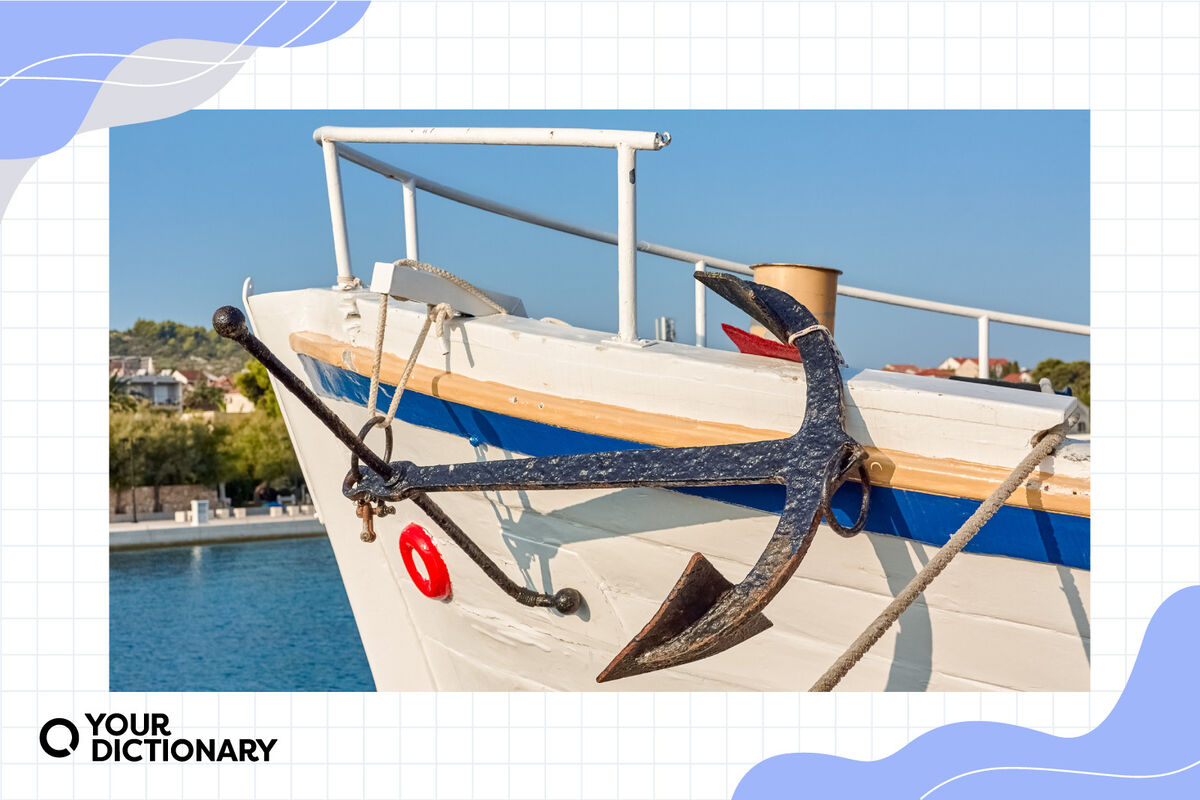
When a sailor lifts the anchor of a ship, they should call “Anchor’s away,” because the anchor is away, right? Or is it “Anchors aweigh”? The answer may not seem significant — unless you’ve spent time around an actual anchor.
Away vs. Aweigh: Choose “Aweigh”
The correct term for raising anchors is anchors aweigh. Aweigh comes from the Old English and Dutch wegan, which means “to weigh” or “to lift.” In the nautical sense, anchors aweigh means “anchors lifted.”
Traditionally spelled a-weigh, the term has a comparable meaning to atrip (or a-trip), meaning “cleared or lifted from the bottom.”
Why You Might Think “Away” Is Correct
There’s a reason people often mix these terms up: The wrong way makes more sense. After all, you are going away when the anchors are aweigh, so it’s understandable that people would use the incorrect anchors away almost as often as the correct anchors aweigh.
But away comes from the Old English aweg, meaning “from a place.” Declaring “Anchors from a place” makes a lot less sense than “Anchors are lifted,” despite how it looks in 21st-century vocabulary. Use aweigh instead.
Is “Anchors” or “Anchor’s” Correct?
So you’re on board for the away vs. aweigh debate, but shouldn’t there be an apostrophe in there? It depends how many anchors you’re talking about.
- Nautically speaking, anchor’s aweigh refers to one anchor. A sailor may call “Anchor’s aweigh, Sir,” as shorthand for “My anchor is aweigh.”
- When there is more than one anchor on a ship, you’d call “Anchors aweigh,” indicating that all of the ship’s anchors have been lifted.
- The idiom anchors aweigh does not include an apostrophe. It means “we’re ready to go; no holds barred; the voyage has begun.”
So unless you’re on a ship with a literal anchor, forget the apostrophe. (Not that you can hear an apostrophe, but you’d know it was there.)
Where You’ve Heard It Before
Naval veterans and marching band enthusiasts have no problem identifying the correct way to say anchors aweigh. It’s the name of the United States Naval Academy fight song, as well as the unofficial march song of the U.S. Navy itself. In fact, “Anchors Aweigh” is such a part of American pop culture that you’ve likely heard the song whether you know it or not.
More Nautical Terms and Phrases You May Already Know
Even if you’ve never been on a ship in your life, you’ve likely said — or heard — anchors aweigh as an everyday expression meaning “ready to go.” But that’s only one idiom we’ve gotten from sailor slang and nautical terms. Other phrases you may say at home or at work include:
- above board - keeping things on the deck, or out in the open
- batten down the hatches - to prepare for rough times ahead
- changing course - shifting the direction of a ship (or project)
- change tack - to change direction or position
- feeling adrift - not secure or moving in a particular direction
- finding your bearings - to situate oneself to a new situation
- jury-rigged - something fixed or made with the materials you have on hand
- making headway - making forward progress
- rudderless - having no clear leadership or direction
- scuttlebutt - conversation between sailors (or others)
- to helm something - to steer or direct a project
Full Speed Ahead for Correct Usage
Anchors aweigh — time to head for calmer language skies! Untangle those confusing English knots with these additional vocabulary guides: